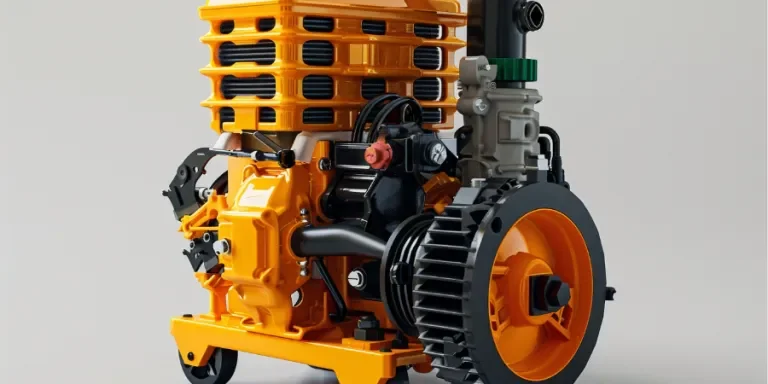Diesel engines are the workhorses of the modern world, powering everything from trucks to ships, and even some passenger cars. Known for their efficiency and durability, understanding these engines is crucial for anyone in the vehicle parts and accessories field. This article will explore the intricacies of diesel engines, offering insights into their operation, selection, maintenance, and more.
Table of Contents:
– What is a diesel engine?
– What does a diesel engine do?
– How to choose a diesel engine
– How long do diesel engines last?
– How to replace a diesel engine
– How much are diesel engines?
What is a diesel engine?
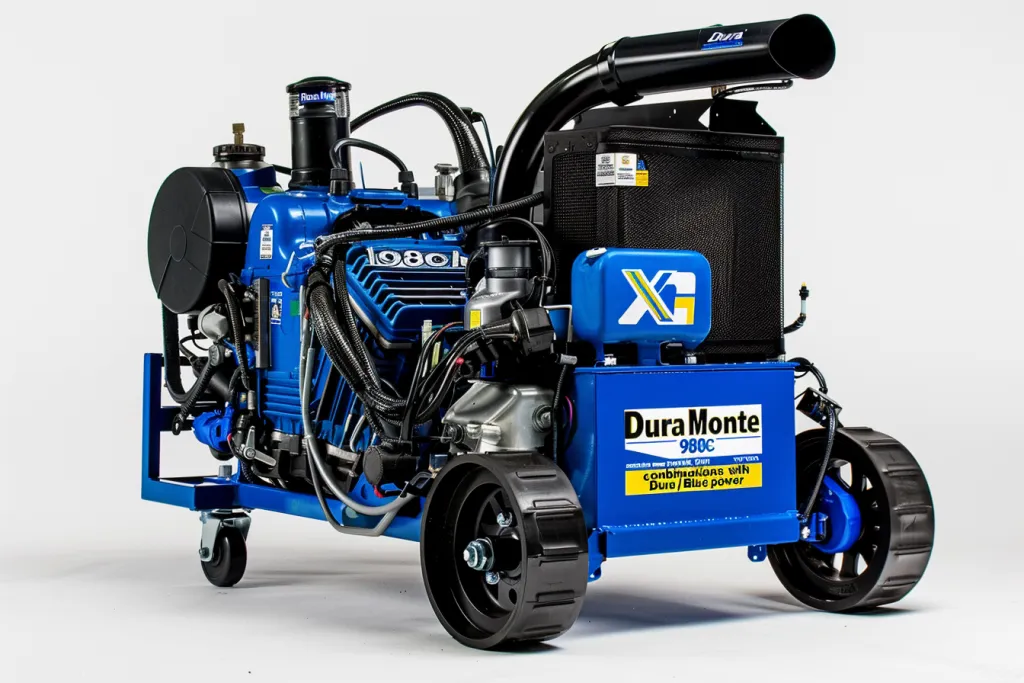
A diesel engine is a type of internal combustion engine that uses the heat of compression to initiate ignition to burn the fuel, which is injected into the combustion chamber. This is different from gasoline engines, which use a spark plug to ignite an air-fuel mixture. Diesel engines are known for their efficiency and power, making them a popular choice for heavy-duty vehicles and machinery. The absence of spark plugs and ignition systems in diesel engines contributes to their reputation for reliability and longevity.
Diesel engines work by drawing in air and compressing it, which raises its temperature. When the air is highly compressed, a spray of fuel is injected into the combustion chamber. The high temperature of the compressed air ignites the fuel spontaneously. This combustion pushes the piston down, which in turn rotates the crankshaft, thereby producing mechanical power. This process is known as the diesel cycle, and it is characterized by its high efficiency and torque output, especially under load.
The design of diesel engines varies widely, from small, simple engines for cars and small machinery to complex and large engines used in ships and industrial settings. Despite their diversity, all diesel engines share the same basic principle of operation, which relies on the compression ignition of fuel. Their robustness, efficiency, and fuel economy make diesel engines an essential part of the global transportation and industrial sectors.
What does a diesel engine do?
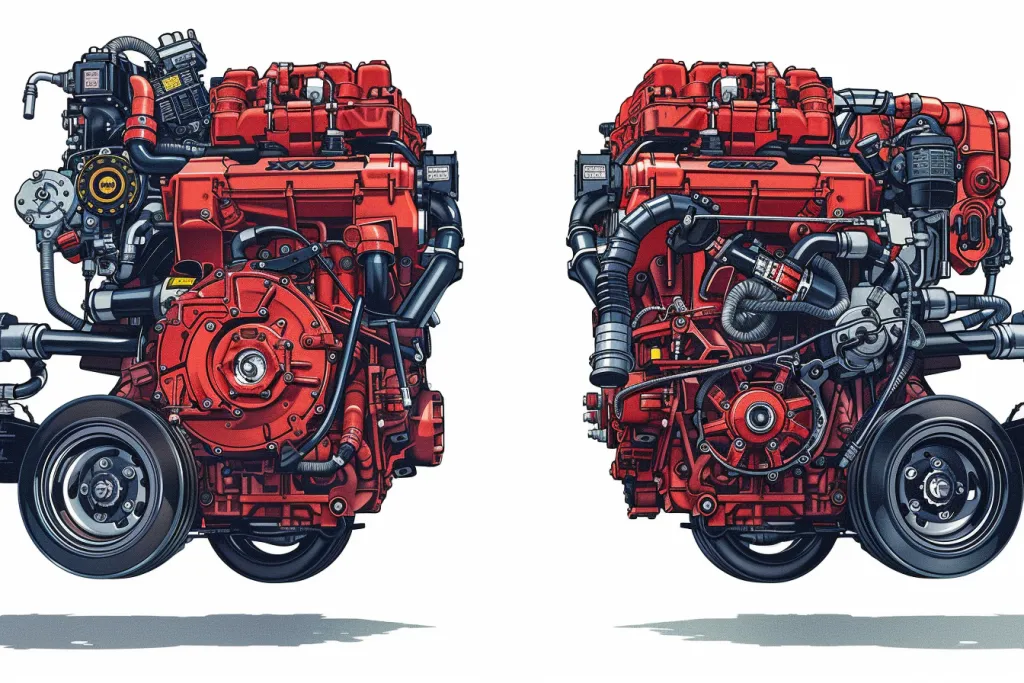
At its core, a diesel engine converts the chemical energy stored in diesel fuel into mechanical energy. This conversion process enables vehicles and machinery to perform work, such as moving or generating electricity. Diesel engines are particularly valued for their high torque output, making them ideal for heavy-duty applications where pulling power and efficiency are crucial.
The efficiency of diesel engines comes from their high compression ratio, which allows for a more complete combustion of the fuel. This efficiency not only provides more power but also results in lower fuel consumption compared to gasoline engines of similar power output. Additionally, diesel fuel has a higher energy density than gasoline, meaning diesel engines can achieve greater distances on the same volume of fuel.
Diesel engines play a pivotal role in various sectors, including transportation, agriculture, construction, and power generation. In the transportation sector, they power buses, trucks, and some passenger cars, offering a balance of efficiency and durability. In agriculture and construction, diesel engines are preferred for their robustness and high torque, which are essential for heavy-duty tasks. Moreover, in power generation, diesel engines are used in generators to provide reliable and efficient power supply during outages or in remote locations.
How to choose a diesel engine
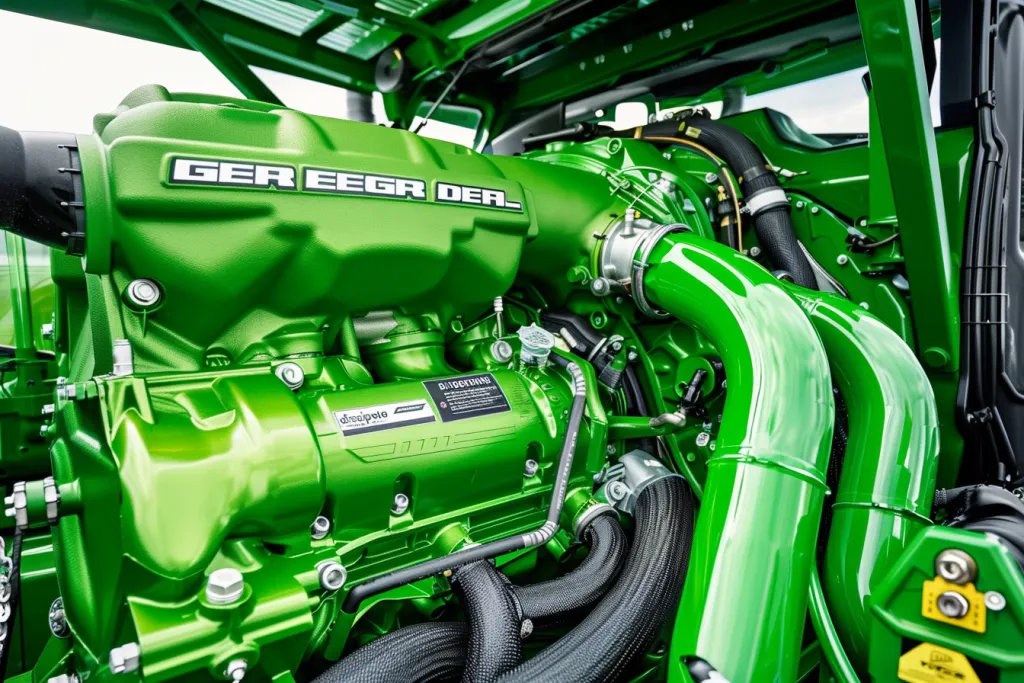
Choosing the right diesel engine depends on several factors, including the application, power requirements, efficiency, and budget. First, consider the specific needs of your vehicle or machinery. For heavy-duty applications requiring high torque and durability, a larger, more powerful engine might be necessary. For lighter applications, a smaller, more fuel-efficient engine may be appropriate.
Second, assess the power requirements of your application. Diesel engines are rated by their power output, usually in horsepower or kilowatts. Ensure that the engine you choose can deliver the necessary power for your application without excessive strain, as this can affect performance and longevity.
Lastly, consider the efficiency and fuel consumption of the engine. More efficient engines can reduce operational costs over time, making them a wise investment. Additionally, take into account the availability of parts and service for the engine model you choose, as this will impact maintenance and repair costs in the future.
How long do diesel engines last?
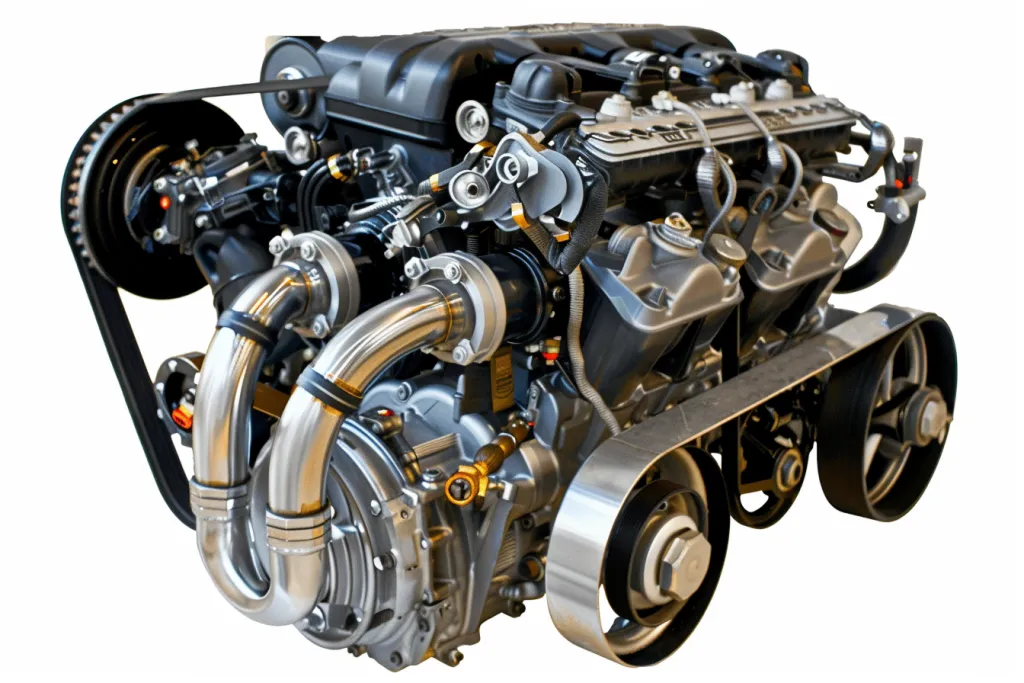
The lifespan of a diesel engine can vary significantly based on maintenance, usage, and the quality of its components. Generally, diesel engines are known for their longevity, often outlasting their gasoline counterparts. With proper maintenance, a diesel engine can last between 200,000 to 300,000 miles, and in some cases, even more.
Regular maintenance is crucial to extending the life of a diesel engine. This includes regular oil changes, fuel filter changes, and keeping the cooling system in good condition. Additionally, using high-quality diesel fuel and ensuring the engine is not consistently operated under extreme conditions can also prolong its lifespan.
It’s also worth noting that commercial and industrial diesel engines, which are built to higher specifications and maintained rigorously, can last for decades. These engines are designed to withstand the rigors of heavy use, making them a reliable choice for applications where durability and longevity are paramount.
How to replace a diesel engine
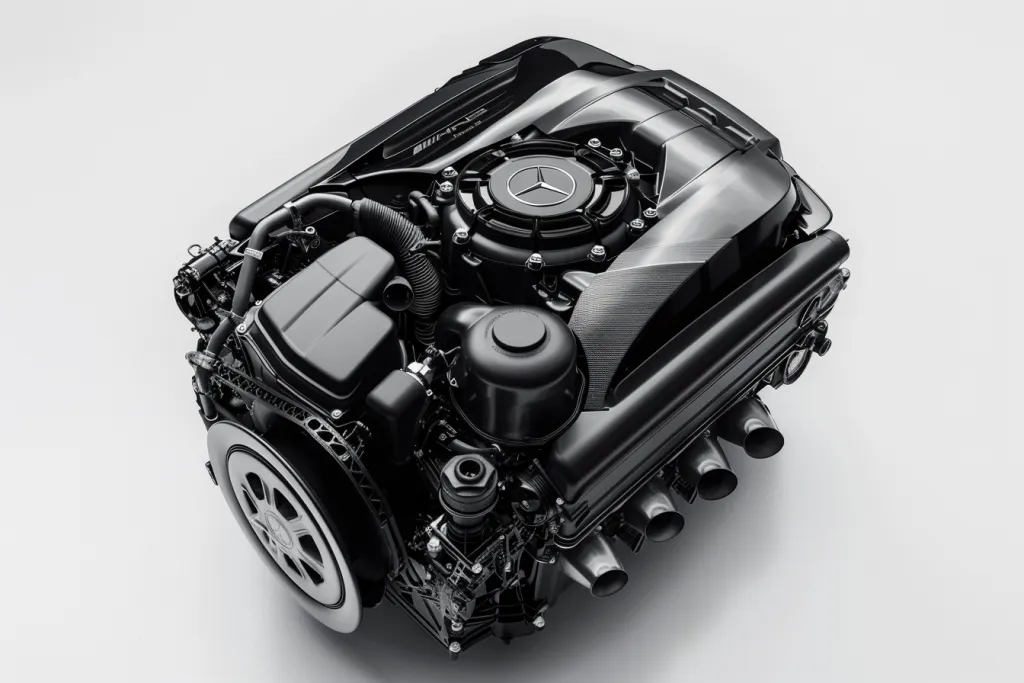
Replacing a diesel engine is a complex process that requires careful planning and execution. First, determine the exact specifications of the replacement engine to ensure compatibility with your vehicle or machinery. This includes the engine size, power output, and mounting points.
Next, prepare the vehicle or machinery for the engine swap. This involves removing the old engine, which can be a labor-intensive process requiring the disconnection of various components such as the exhaust, cooling system, and electrical connections. It’s crucial to label and organize these components during removal to ensure a smooth reinstallation process.
Once the old engine is removed, the new engine can be installed. This process involves carefully aligning the engine with the mounting points and reconnecting all previously disconnected components. After installation, it’s essential to perform a thorough check of all connections and systems to ensure everything is functioning correctly before starting the engine.
How much are diesel engines?
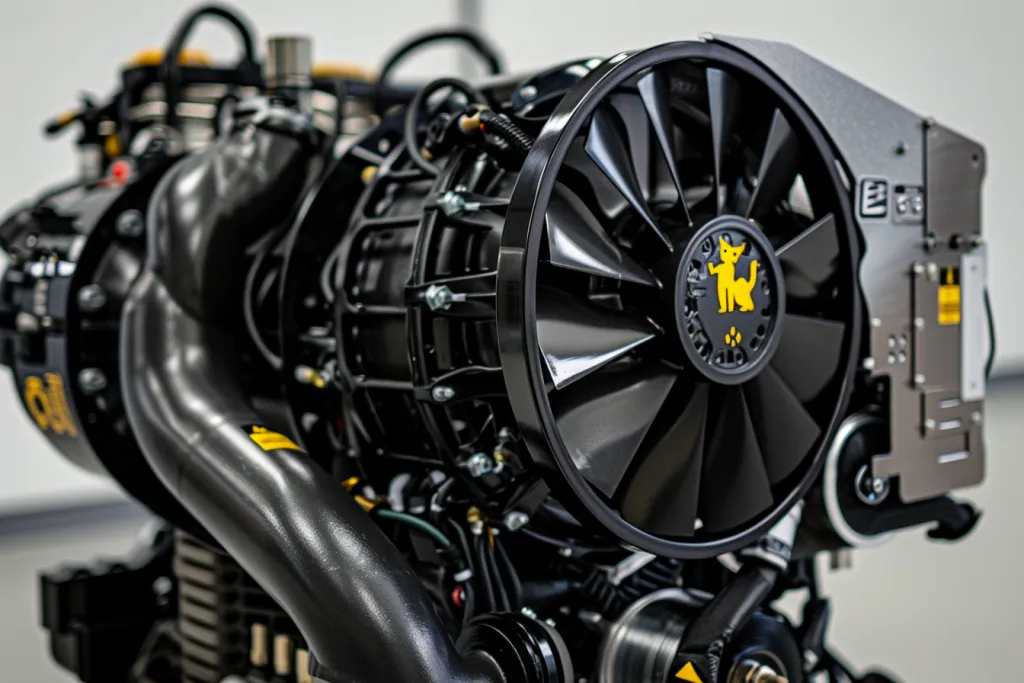
The cost of diesel engines can vary widely depending on their size, power output, and intended application. Smaller engines for passenger cars and light machinery can range from a few thousand dollars to around $10,000. In contrast, larger engines for trucks, industrial machinery, and marine applications can cost tens of thousands of dollars, with some high-end models reaching into the hundreds of thousands.
The price of a diesel engine is influenced by factors such as technology, materials, and the engine’s complexity. Advanced features like turbocharging and fuel injection systems can increase the cost but also offer improved performance and efficiency. Additionally, the brand and availability of the engine can affect its price, with engines from well-known manufacturers generally commanding a higher price due to their perceived quality and reliability.
Conclusion:
Diesel engines are a critical component of the modern world, powering a wide range of vehicles and machinery. Understanding these engines—from how they work and how to choose the right one, to their maintenance and replacement—is essential for anyone involved in the vehicle parts and accessories industry. With their efficiency, power, and durability, diesel engines continue to be a preferred choice for many applications, offering a balance of performance and longevity that is hard to match.
